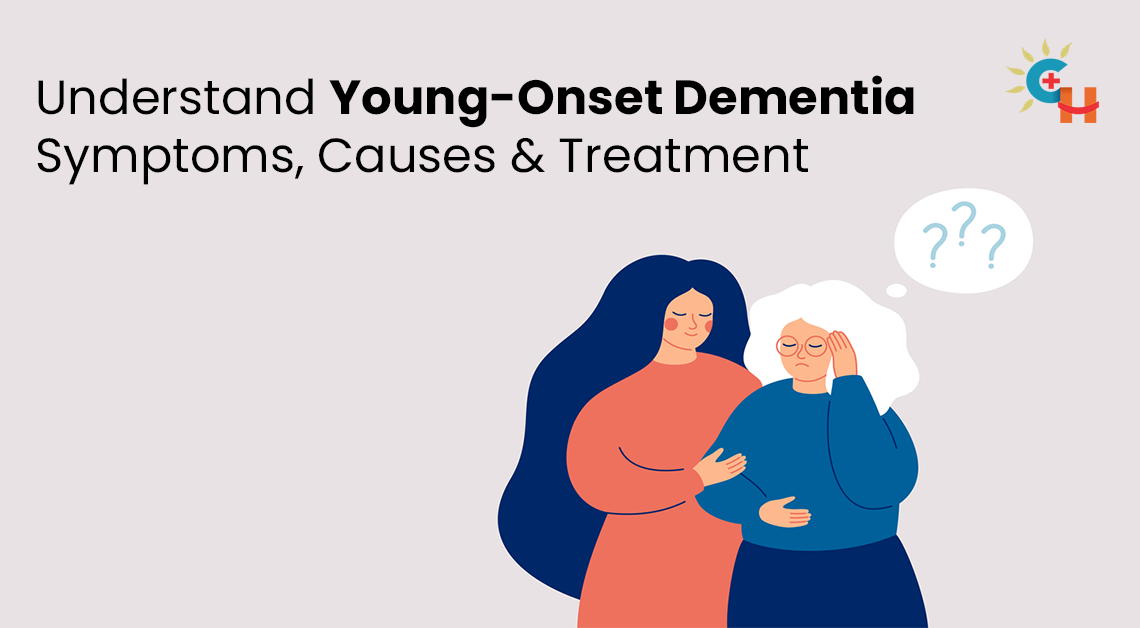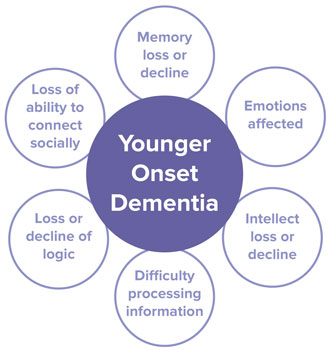7 Early Signs You May Be Facing Early Onset Dementia
7 Early Signs You May Be Facing Early Onset Dementia
Blog Article
The Importance of Early Detection and Diagnosis in Dementia Instances
When it involves dementia, identifying the signs early can make a significant difference. You could ask yourself exactly how timely treatments can change the course of the condition. Early discovery not only opens treatment alternatives yet additionally boosts the high quality of life for individuals and their family members. Understanding the subtleties of mental deterioration can help you identify signs and symptoms faster. But what should you find out about the actions to take once a diagnosis is made?
Recognizing Dementia: Types and Signs

Common signs consist of amnesia, trouble with communication, and modifications in state of mind or actions. You could notice somebody struggling with acquainted tasks or becoming confused about time and place. Do not hesitate to seek aid if you see these indicators in on your own or an enjoyed one. Early acknowledgment of dementia symptoms can significantly enhance the total management of the problem, making it important to remain educated. When needed., comprehending these distinctions encourages you to act promptly and efficiently.
The Impact of Early Diagnosis on Treatment Options
Identifying the signs of mental deterioration early on can noticeably affect the therapy options available. When you seek a diagnosis without delay, you open up the door to a variety of treatments that can slow down the illness's progression.
Additionally, very early diagnosis permits you to explore non-pharmaceutical approaches, such as cognitive treatments and way of life modifications, that can boost cognitive feature. This aggressive method not just equips you yet additionally helps in taking care of potential existing together problems.
How Very Early Detection Can Enhance Quality of Life
Very early discovery of mental deterioration not just opens up treatment choices yet likewise greatly boosts your top quality of life. When you determine signs early, you can begin to handle them effectively, enabling you to preserve a feeling of self-reliance and control over your day-to-day activities. Early medical diagnosis means you can access treatments and way of life modifications tailored to your demands, aiding you handle obstacles in an extra organized means.
In addition, comprehending your problem equips you to make educated decisions concerning your future. You can prepare for the adjustments ahead, guaranteeing that your personal objectives and preferences are prioritized. This positive approach promotes a feeling of security, decreasing anxiousness for both you and your loved ones.
Moreover, participating in early treatments may improve your cognitive function and psychological well-being, permitting you to appreciate significant links and experiences. In other words, early discovery isn't almost managing signs and symptoms; it's regarding enhancing your life.
The Function of Household and Caregivers in Very Early Recognition

By sharing your concerns, you aid initiate very early assessments, which can cause prompt diagnosis and treatment. In addition, your assistance can encourage liked ones to look for aid, reducing stigma and worry connected with dementia.
In addition, maintaining open lines of communication within the family members cultivates a helpful atmosphere. Early Onset Dementia. Your proactive involvement not only help in recognizing the concern but also helps in preparing for future treatment, ensuring that your loved one receives the finest feasible assistance as their needs progress
Typical Mistaken Beliefs Concerning Dementia
Family members participants and caregivers commonly deal with challenges not just in identifying indications of dementia however additionally in traversing the misconceptions bordering the condition. While age is a significant danger element, more youthful individuals can additionally establish dementia. Some individuals think mental deterioration only affects memory, however it can likewise affect thinking, behavior, and mood.
Tools and Analyses for Very Early Discovery
When it concerns early detection of mental deterioration, understanding cognitive assessments and screening tools is important. These tools can assist you recognize potential issues before they escalate. By familiarizing on your own with these evaluations, you can play an energetic duty in keeping track of cognitive health and wellness.
Cognitive Evaluations Introduction
Cognitive assessments play a necessary duty in the early detection of dementia, as they assist determine subtle modifications in memory, believing, and thinking abilities. These assessments frequently include a collection of standardized examinations that assess numerous cognitive functions. By taking part in these evaluations, you can obtain beneficial insights into your cognitive health and wellness. Typical evaluations might involve jobs associated with interest, language, analytical, and recall. They're typically administered by healthcare specialists trained to interpret the outcomes precisely. Early identification via these devices can result in timely treatments, boosting end results and lifestyle. Seeking out these assessments can be a proactive action towards understanding and managing your brain health and wellness efficiently. if you see any kind of cognitive adjustments.
Evaluating Devices Use
Making use of effective screening tools is important for the early discovery of dementia, as they provide a structured approach to assessing cognitive health and wellness. You can recognize possible issues before they intensify when you utilize these devices. Usual assessments, like the Mini-Mental State Evaluation (MMSE) or the Montreal Cognitive Analysis (MoCA), aid determine memory deficits and other cognitive disabilities. Normal testings allow you to track adjustments in time, making browse around this web-site it less complicated to talk about interest in doctor. By incorporating these tools right into regular examinations, you empower on your own and your liked ones to look for timely treatments. Bear in mind, early detection can considerably impact therapy choices and high quality of life, so don't undervalue the power of proactive screening.
Actions to Take After a Medical Diagnosis: Planning for the Future
After obtaining a mental deterioration diagnosis, it's important to start preparing for the future. You'll want to establish treatment strategies that fit your needs while also attending to legal and monetary preparations. Taking these actions early can help ensure you and your loved ones feel extra safe and secure moving on.
Developing Care Strategies

Legal and Economic Preparations
As you navigate your treatment plan, it is essential to contemplate the monetary and lawful facets of dealing with dementia. Start by designating a power of lawyer to manage your financial decisions if you're incapable to do so. This guarantees your wishes are respected and can reduce the worry on your enjoyed ones. Next off, think about producing a living will certainly to describe your healthcare choices. Testimonial your insurance coverage and understand what's covered, particularly long-term care options. It's also smart to talk to a financial planner accustomed to dementia-related concerns. They can aid you manage your assets and prepare for future costs. Taking these aggressive steps can supply satisfaction and assure your needs are fulfilled as your condition proceeds.
Frequently Asked Questions
What Are the Risk Aspects for Creating Mental Deterioration?
You could deal with higher threats for establishing dementia if you have a family background, cardiovascular issues, diabetes, smoking cigarettes practices, or reduced education degrees. Remaining active emotionally and physically can help in reducing these dangers considerably.
Can Way Of Life Adjustments Stop or Delay Mental deterioration?
Yes, making way of life changes can help protect against or delay dementia. By remaining active, consuming a balanced diet regimen, participating in social activities, and testing your brain, you're improving your cognitive health and wellness and minimizing this link risk aspects.
How Does Mental Deterioration Differ From Normal Aging?
Mental deterioration involves cognitive decline that interferes with every day life, while regular aging commonly does not (Fall Risk). You may observe memory gaps as you age, yet dementia signs, like confusion and problem with interaction, are extra disruptive and severe
Are There Any Type Of Support Groups for Dementia Caregivers?
Yes, there are support teams for mental deterioration caretakers. You can discover neighborhood or online teams through companies like the Alzheimer's Association. Getting in touch with others in similar circumstances can supply beneficial psychological support and sensible suggestions.
What Legal Documents Should I Prepare After a Dementia Medical Diagnosis?
After a mental deterioration medical diagnosis, you need to prepare vital lawful papers like a power of attorney, health care proxy, and living will. These help assure your dreams are appreciated and offer assistance for future medical and economic choices.
The Relevance of Very Early Detection and Diagnosis in Dementia Instances
Alzheimer's condition is the most typical type, however you'll additionally run into vascular mental deterioration, Lewy body dementia, and frontotemporal dementia.When it comes to very early discovery of dementia, recognizing cognitive evaluations and screening tools is essential.Cognitive analyses play an important role in the very early discovery of dementia, as they help identify subtle modifications in memory, believing, and thinking abilities.Making use of reliable screening devices is important for the early discovery of mental deterioration, as they supply a structured technique to reviewing cognitive wellness.
Report this page